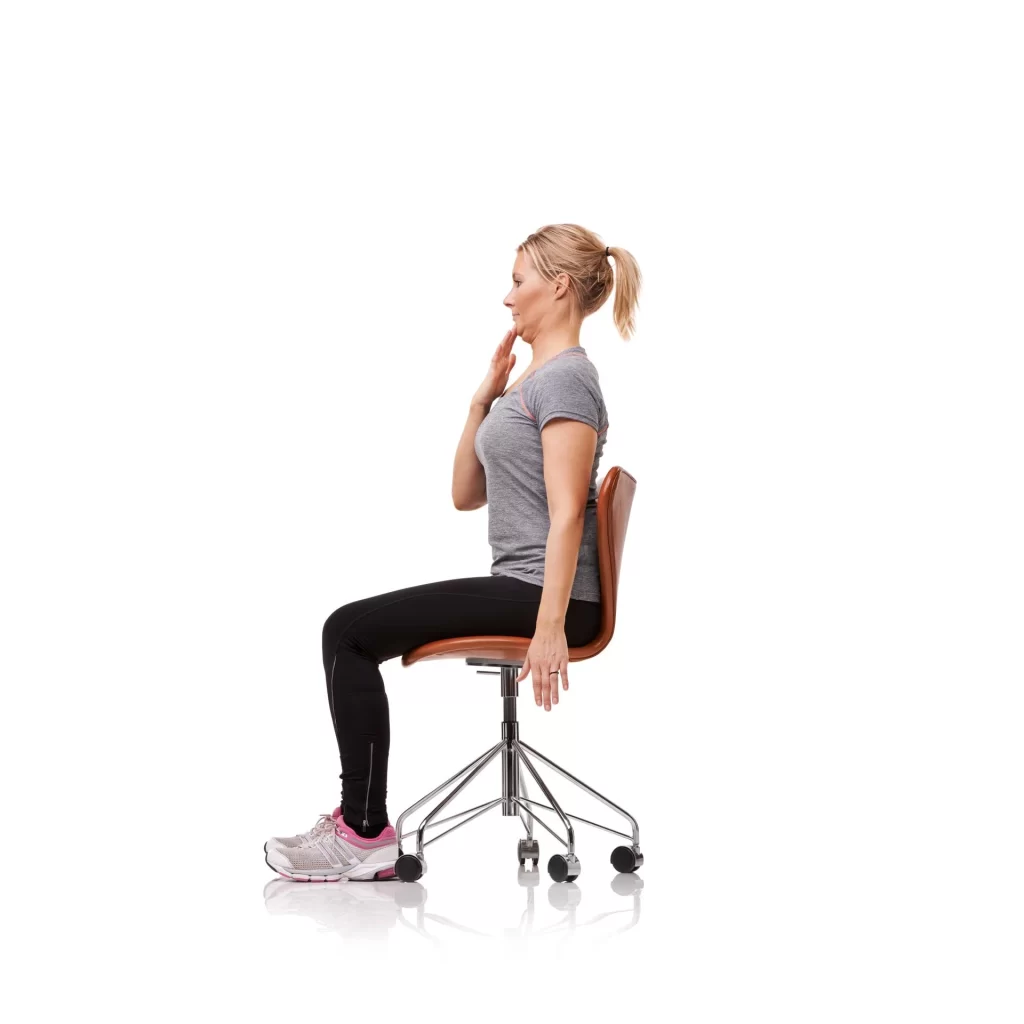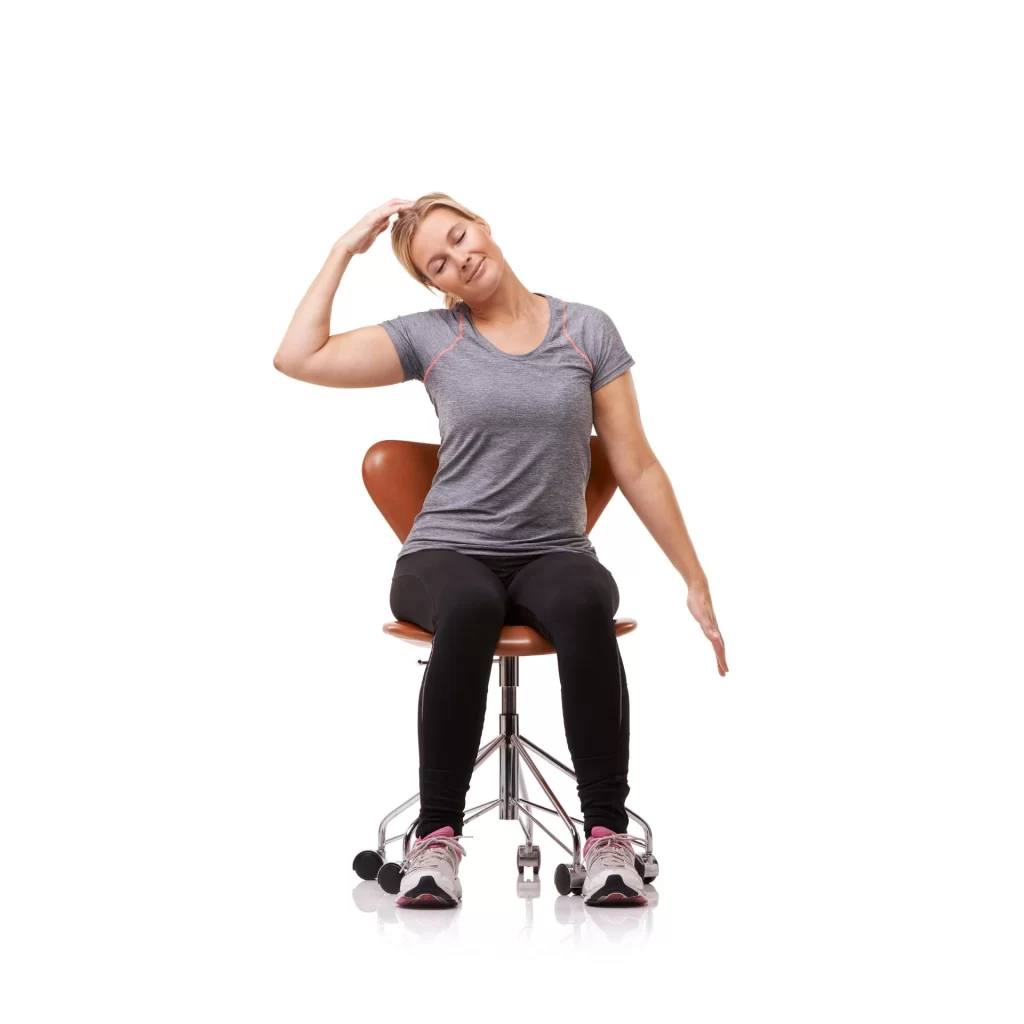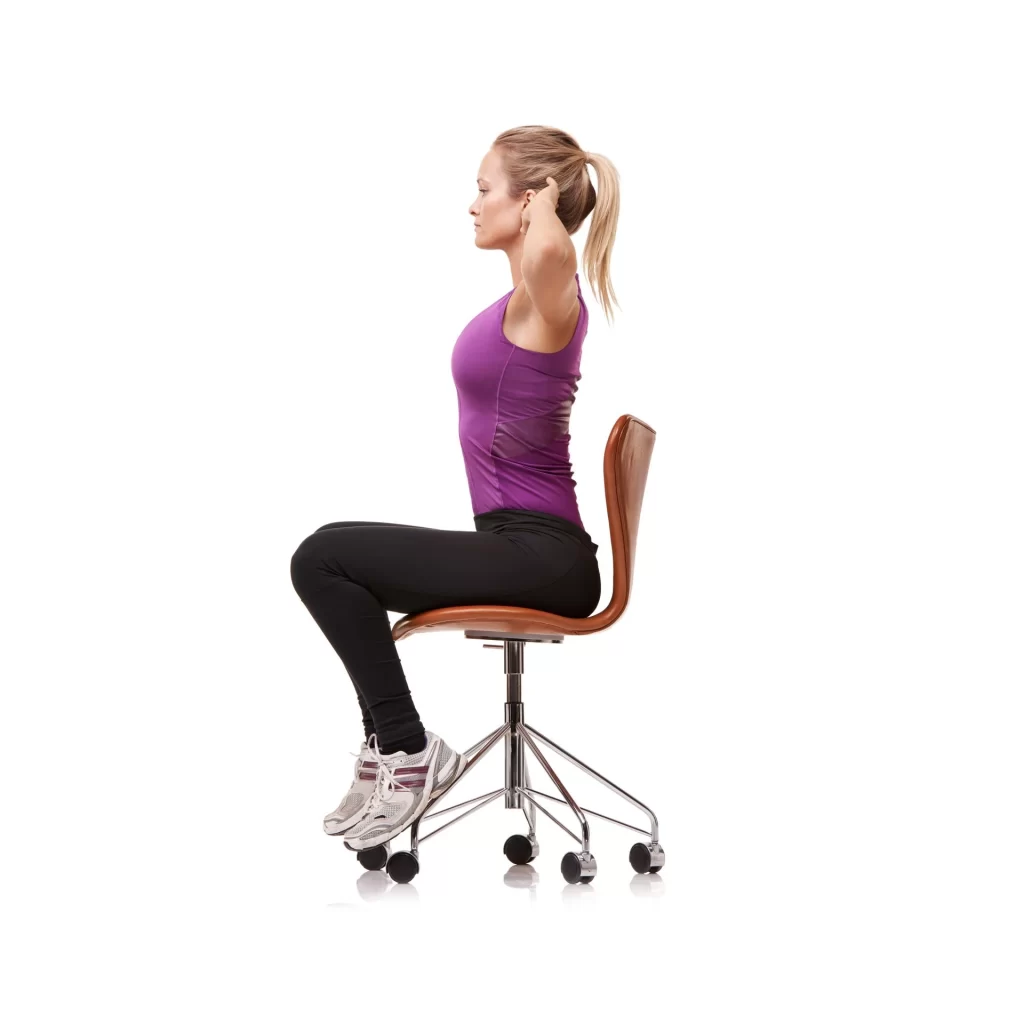Hey, it’s James Barrett here.
When I was a kid, my mom had this thing about posture.
Every time I started to hunch over—whether I was reading, gaming, or just sitting around—she’d come over, tap my shoulder, and say, “Sit up straight, James!”
At the time, I thought it was just her way of being strict. But here’s what I’ve learned… good ol’ mom was onto something.
Fast forward to now, and I realize that posture isn’t just about standing tall. It’s about reducing tension, feeling better… and yes—believe it or not—possibly even easing that annoying tinnitus that so many of us deal with.
But wait… can sitting up straighter and doing a few exercises really reduce that ringing in your ears?
Well, that’s what I want to dive into today.
Let’s start with a quick question… have you ever noticed your tinnitus worsening after a long day at your desk or after a few hours hunched over your phone? If you have, you’re not alone, and there’s a reason for it.
Why Posture Matters for Tinnitus Relief

Let’s face it—tinnitus can be maddening. But even more frustrating is that it often flares up for reasons we can’t quite pinpoint.
You might wonder… “Why should I care about my posture when all I want is for this noise to go away?”
Here’s the kicker… tension in your neck, shoulders, and jaw can worsen your tinnitus.
Think of it like a chain reaction.
Poor posture pulls on your muscles, strains your neck, and guess what? Those strained muscles can tug on everything around them, including parts of your ear and jaw.
When these areas are under pressure, the nerves associated with them can act up—and for some of us, that means more ringing.
So, today, I’m here to share some simple posture exercises that might help you find some relief. I’ve tested these myself, and let me tell you, the difference is real.
This is about giving your body a chance to relax and reset. When we can get our bodies back into alignment, we’re better at reducing tinnitus discomfort.
Effective Posture Exercises for Tinnitus Relief
Exercise #1: Chin Tucks
First up: chin tucks. They sound a bit odd, but they’re incredibly effective. Picture this—you’re sitting tall, and gently pulling your chin back. You’re not tilting up or down; you’re just straightening out. It might feel like you’re creating a double chin (don’t worry, no one’s watching!).
This move helps align your neck and takes the pressure off muscles that can strain the areas connected to your ears.
How to Do It: Sit or stand, then slowly tuck your chin back, holding for 5 seconds. Repeat 10–15 times.

Why It Helps: This strengthens the muscles that support good neck posture, easing pressure on nearby nerves and muscles.
Exercise #2: Wall Angels
Ever made snow angels as a kid? Wall angels are like that, but standing against a wall. They help loosen up the muscles in your shoulders and back, which can reduce tension that feeds into the neck.
How to Do It: Stand with your back against a wall, arms up in a “W” shape. Slowly move your arms up and down, keeping everything in contact with the wall.
Why It Helps: This encourages proper posture by aligning your shoulders and back.
Exercise #3: Neck Stretches
This one’s simple, but oh, does it feel good. We often carry tension in our necks without realizing it, which can aggravate tinnitus. Stretching these muscles can bring a surprising amount of relief.
How to Do It: Tilt your head to one side, bringing your ear toward your shoulder. Hold for 15–30 seconds, then switch.

Why It Helps: It releases tightness in the neck, which often gets compressed during poor posture.
Exercise #4: Shoulder Blade Squeezes
Think of this as giving yourself an imaginary hug. Shoulder blade squeezes work wonders for your upper back, which often bears the brunt of hunching.
How to Do It: Sit up, squeeze your shoulder blades together as if you’re trying to hold a pencil between them. Hold for a few seconds, then relax.
Why It Helps: Strengthens the back muscles and relieves tension that can spread into your neck and jaw.
Exercise #5: Cat-Cow Stretch
A classic for a reason. This gentle yoga move loosens up your whole back and encourages better alignment, which can ease tension around the neck.
How to Do It: Get on all fours, arch your back as you inhale, then round it as you exhale.
Why It Helps: Releases the entire spine, helping reset your posture and relieve strain.
Exercise #6: Thoracic Extensions
Our upper backs take on a lot of tension during the day, which can pull our posture down and put strain on our necks.
How to Do It: Sit on a chair, hands behind your head. Gently arch your upper back, lifting your chest, then return to neutral.

Why It Helps: Loosens the mid-back and helps reset upper body posture.
Exercise #7: Chest Opener
This one’s great if you tend to hunch forward. It stretches your chest muscles, helping you open up and stand taller.
How to Do It: Interlace your hands behind your back and pull your shoulders down.
Why It Helps: Releases tension in the chest, making it easier to maintain good posture.
Exercise #8: Jaw Relaxation Exercise
Last but not least, your jaw. Tension here is more common than you think, especially for those dealing with tinnitus.
How to Do It: Place your tongue on the roof of your mouth and let your jaw relax.
Why It Helps: Reduces strain on the jaw, which can sometimes feed into tinnitus.
You see,
Tinnitus isn’t just about what’s going on in your ears.
It’s a whole-body issue, and sometimes, how we sit, stand, and carry ourselves can aggravate or alleviate the symptoms.
My purpose in sharing this? To help you discover every possible angle that might bring relief, and maybe even give you back a bit of control over something that often feels so out of your hands.
If you’ve tried everything else, why not try posture? Let me know in your reply… Have you noticed a difference in your tinnitus when you’re more mindful of your posture? If you try these exercises, I’d love to hear how they work for you.
Let’s tackle this together, one small change at a time.





